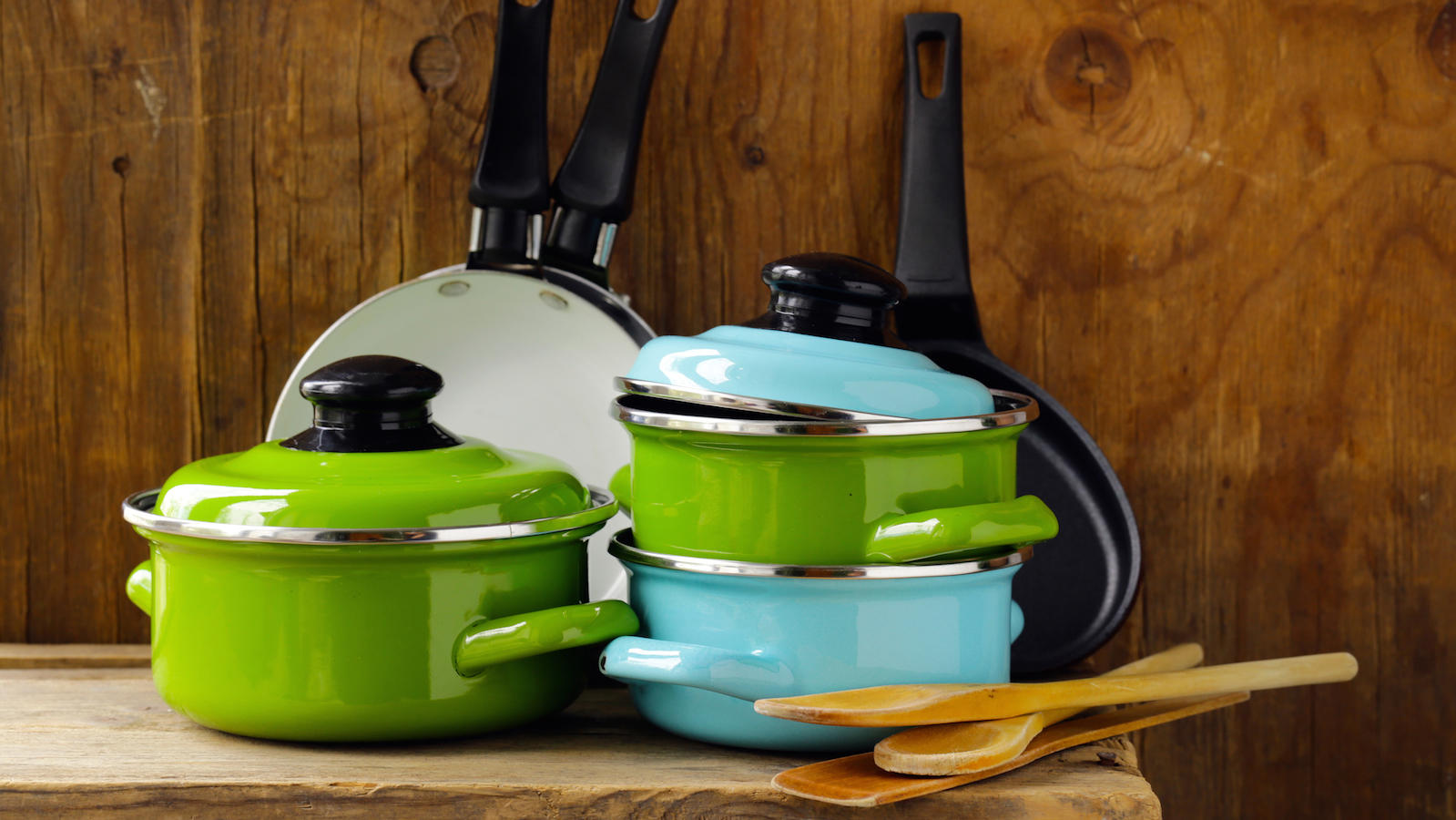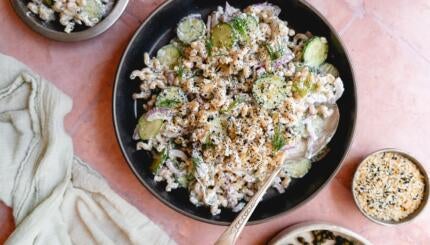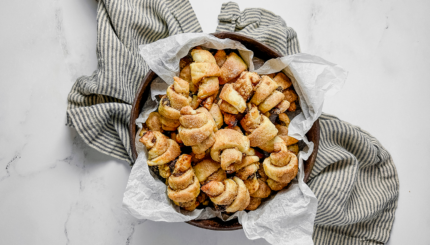Pots and pans used on the cooktop to heat liquidy food can be kashered by hag’alah [boiling]. Not frying pans, though. For pots and pans not used for frying: Clean them first, wait 24 hours, and then heat a pot of boiling water. If the pots are too big to submerge completely in the hag’alah pot of water, use tongs to hold one side of the pot and submerge it partially for about 30 seconds, then turn the pot and continue submerging it, part by part, until the whole pot has been submerged.
If the pot is too big to fit into the kashering pot, you’ll make somewhat of a watery mess. Fill the pot to the lip with water and bring to a boil. In the meantime, put a large stone or a brick (cleaned) over another burner so it can heat up. When the water boils, take the hot stone (with tongs!) and drop it into the boiling water. This should cause the water to rise uniformly, spilling over the sides, thereby covering the outside of the pot with boiling water. This is the procedure you can use to create a kashering pot in the first place. You will also need to [again] kasher the kashering pot in this way when you are through doing hag’alah on everything else.
Pressure cookers are similarly kashered through hag’alah, including the rubber gasket. Frying pans that used oil, according to Orthodox ruling, should be kashered by libun kal [“simple purification”]: They should be heated on a burner set over high heat until a piece of paper touching the pan gets singed.
Note: Pans that are coated with Teflon, according to the Orthodox, cannot be kashered; according to Conservative ruling, they can. If the surface is fairly scratched up, which happens with Teflon, the pan should be replaced (as it should be anyway; who knows what’s in those flakes of Teflon that might come off into your scrambled eggs?).
With your help, My Jewish Learning can provide endless opportunities for learning, connection and discovery.
Baking Pans
You will likely need to get a new set of metal baking pans. Metal pans used for baking must be kashered by libun gamur–that is, heated over an open flame (such as a blowtorch) until they are red hot. This treatment can damage many pans, such as those made from aluminum. If you have heavier pans, they may survive red-hot temperatures, but usually people opt to buy new baking pans. You will also need to scrub off any baked-on residue. As with other items to be kashered, clean the pans and let them rest, unused, for 24 hours.
According to some more lenient rulings, however, you can kasher metal baking pans by placing them in the oven, set at the highest setting, for one hour or let them stay in the oven during the self-cleaning process.
Glass baking pans just need to be washed, according to Conservative halakhah (Jewish law). According to Orthodox rules [in Ashkenazic tradition], they cannot be kashered and must be replaced. [According to Sephardic and Mizrahi halakhah, glass baking pans can be kashered by exposing them to flame or baking them in the oven on the highest setting.]
Reprinted with permission from How to Keep Kosher (HarperCollins).
kasher
Pronounced: KAH-sher, Origin: Hebrew, to make kosher, usually referring to dishes, cookware or a kitchen.
Mizrahi
Pronounced: meez-RAH-khee, Origin: Hebrew for Eastern, used to describe Jews of Middle Eastern descent, such as Jews from Iraq and Syria.
Sephardic
Pronounced: seh-FAR-dik, Origin: Hebrew, describing Jews descending from the Jews of Spain.



